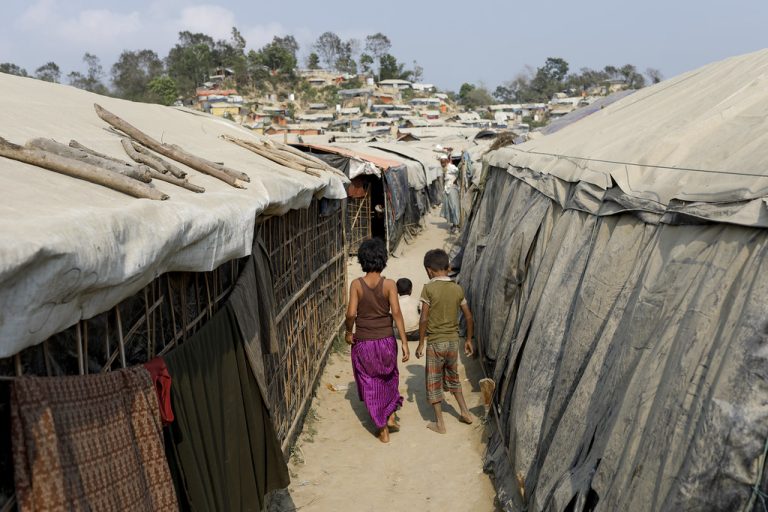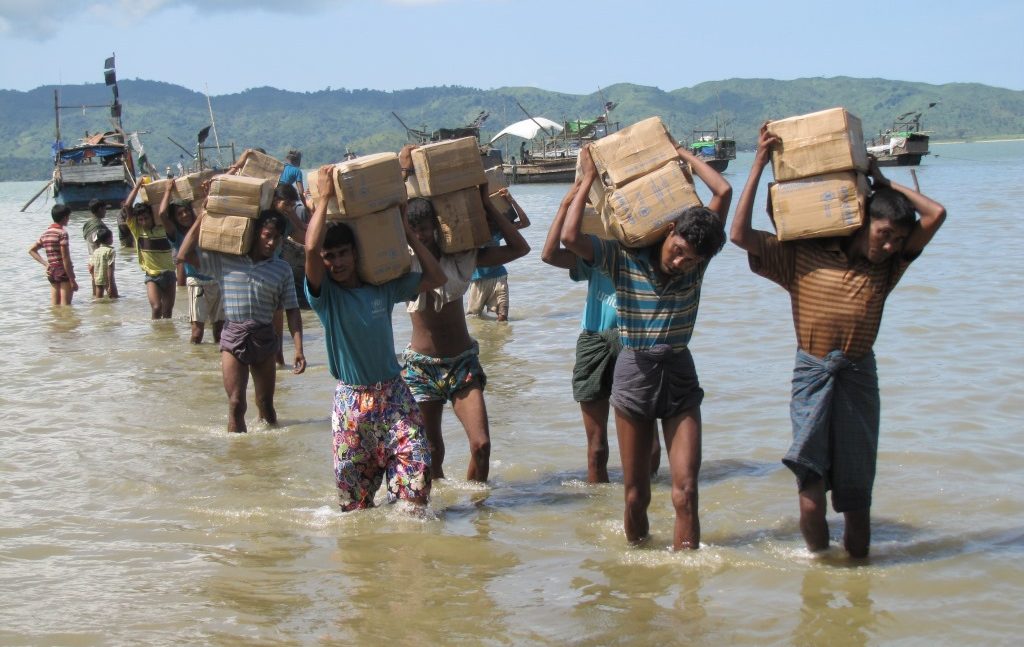What is the United Nations doing about it?
The genocide of the Rohingya people in Myanmar began in 2016 and persists until the present, it is one of 20 ongoing genocides. It has been recognized as a genocide by United Nations member states, the UN Human Rights Council, and individual organizations, although there have been few actions to stop the genocide.
There are barriers to investigating and trying crimes committed in Myanmar because Myanmar is not party to the Rome Statute. There are exceptions to the law which are being utilized.
The International Criminal Court (ICC) authorized an investigation in 2018 into the deportation of Rohingyas from Myanmar to Bangladesh, and subsequent investigations into crimes committed in Bangladesh. An exception allows the ICC to investigate individuals from a non-party country of the Rome Statute who commit crimes in countries which are party to the Statute. The Burmese military has committed crimes in Bangladesh, which is party to the Rome Statute, unlike Myanmar.
The UN has found ample evidence of human rights violations such as extrajudicial executions, forced deportations, forced conscriptions, gang rape, infanticide, targeted arson of minority villages, businesses, and schools, and mass killings which constitute genocide. The United States, a prominent member of the UN, labeled the ongoing crimes in Myanmar as a genocide in 2018.
The International Court of Justice (ICJ) voted to order Myanmar to prevent the genocide of Rohingyas by all measures, but Myanmar rejected the decision and refuses to abide by it. The ICJ has no way to enforce international law except by cooperation with the states.
What is happening to the Rohingya Muslims?
Persecution in the state of Rakhine in Myanmar has been ongoing since Burma became an independent state in 1948, with periodic attacks and ethnic cleansing events.
The Rohingya Muslims of southeast Asia have been discriminated against by Buddhist extremists and the Myanmar military for decades.
In 1991, the Burmese military launched the “Clean and Beautiful Nation” operation and forced up to 250,000 Rohingyas to flee to Bangladesh. Many were repatriated within a few years, and they didn’t escape persecution.
Myanmar passed citizenship laws which denied people citizenship and their rights based on ethnicity in 1982, making Rohingya and other minorities stateless, and they stopped issuing birth certificates for the minorities in 1994.
In 2012, new waves of violence occurred, minorities like the Rohingya were terrorized and killed, and many people fled to escape persecution.

Rohingya children in a refugee camp in Bangladesh
Then in 2015, Myanmar passed legislation to classify Rohingyas as immigrants from Bangladesh even when they are not, in addition to laws that segregate and prohibit mixed race marriages.
In 2016, a group of Rohingya men attacked Burmese (Myanmar) police stations in Rakhine state in revenge for the ongoing persecution, they killed nine officers, and in response, the Burmese launched an operation to to destroy Rohingya villages.
Within a few months, over 350 villages were erased and over 742,000 people were forcibly displaced to Bangladesh to seek safety. The Myanmar military conducts mass killing and raping campaigns and imprisoning people into labor camps, which is all state-sanctioned, in their attempt at the “final solution.”
By 2021, 1.3 million Rohingya had become refugees and 2.6 million were internally displaced.
Refugees now face starvation due to budget cuts
In 2025, within the first few weeks of his term, United States President Donald Trump halted foreign aid and effectively dismantled the US Agency for International Development which negatively affects the World Food Program (WFP) and other humanitarian relief agencies serving tens of millions of refugees worldwide.
The WFP provides vital rations to over one million Rohingya refugees, and the UN has confirmed that the food rations will be cut in half, furthering the risk for famine and disease. The WFP is going to cut food rations from $12.50 per person, per month, down to $6.00.
Rohingya refugees rely on humanitarian assistance because many are barred from obtaining jobs, they are stateless, and live in crowded refugee camps.
“What they are receiving now is already not enough, so it’s hard to imagine the consequences of this new cut,” a WFP spokesperson in Dhaka said. They hope to raise $81 million in order to mitigate the budget cut.





